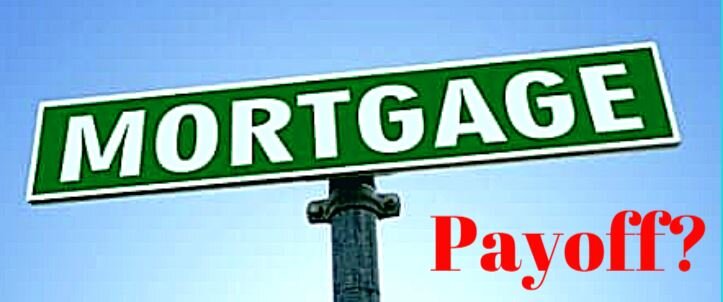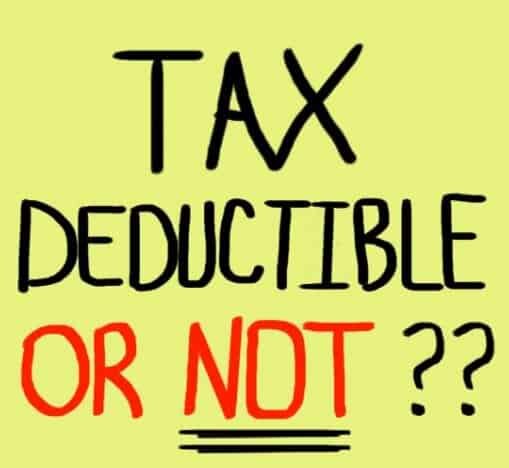IRS Stimulus Checks To Individuals: Eligibility & Timing
The U.S. Senate recently passed the CARES Act which was put in place to help stabilize the economy in the wake of the Coronavirus containment efforts. One of the key items in the bill are the stimulus checks that the IRS will issue to individuals and their children. In this article we will review:
The amount of the IRS checks
What makes you eligible to receive a check
Income Limitations & Phaseouts
When To Expect The Payment
Direct Deposit vs Physical Check
Unanswered Questions That Need Clarification
IRS Checks To Individuals
The government plans to immediately begin issuing checks directly to individual taxpayers. Individuals that qualify will be eligible to receive a check for $1,200 plus $500 for each child.
Example: A household that has 2 parents and 3 children may be eligible to receive a payment from the IRS in the amount of $3,900.
Parent 1: $1,200
Parent 2: $1,200
Child 1: $500
Child 2: $500
Child 3: $500
Are You Eligible To Receive A Check From The IRS?
Whether or not you receive a check from the IRS will be depend on your taxable income for either 2019 or 2018.
Single Filer: Less than $75,000
Married Filing Joint: Less Than $150,000
There is a phaseout of the payments between:
Single Filer: $75,000 – $99,000
Married Filing Joint: $150,000 – $198,000
Once above the income limits for a single filer of $99,000 and the joint filer of $198,000, you will not be eligible to receive a check.
If you already filed your taxes for 2019, the IRS will look at your 2019 tax return. If you have not filed your taxes for 2019, then the IRS will look at your income on your 2018 tax return. If you did not file a tax return for either year, then the IRS will look at your wages that were reported to social security in those tax years.
What If You Have Less Income In 2020?
But what happens if you were over those income limits for 2018 and 2019 but because of the Coronavirus, your income will be lower in 2020 making you eligible for the payments? You will not receive a check like everyone else but you will be able to capture the payments as a tax credit when you file your 2020 tax return. The payments from the IRS are really “tax credits” that the government is sending to individuals in advance of the filing of their 2020 tax return. Instead of making individuals wait to file their 2020 tax return, the IRS is sending the money to these individuals now.
Second scenario, what if your income was lower in 2018 and 2019 qualifying you for the IRS check but in 2020 your income will be above the threshold. Answer, we don’t know. As of right now there does not seem to be language in the bill saying that they’re going to recapture the credit when you file your 2020 tax return but this is one of those items that will need to be addressed by the IRS after the fact.
How Long Will It Take To Get The IRS Check?
This is the biggest question mark right now. It seems like the IRS is going to direct deposit these payments to your checking account for anyone that has ACH instructions on file with the IRS. If you have ever received a refund or made tax payments directly from your checking account, this would apply to you. However, what if someone no longer has that bank account? We are not sure how that is going to work. The direct deposits may happen sometime in April.
If the IRS does not have bank account instructions on file, they will have to cut physical checks. The last time Congress issued checks to people as part of a stimulus package was 2008 and it took 2 months for those checks to arrive. If this follows a similar path, individual taxpayers might not receive these IRS checks until May but this is another item that still needs to be addressed by the IRS.

Michael Ruger
About Michael……...
Hi, I’m Michael Ruger. I’m the managing partner of Greenbush Financial Group and the creator of the nationally recognized Money Smart Board blog . I created the blog because there are a lot of events in life that require important financial decisions. The goal is to help our readers avoid big financial missteps, discover financial solutions that they were not aware of, and to optimize their financial future.

There is a negative equity problem building within the U.S. auto industry. Negative equity is when you go to trade in your car for a new one but the outstanding balance on your car loan is GREATER than the value of your car. You have the option to either write a check for the remaining balance on the loan or “roll” the negative equity into your new car loan. More and more consumers are getting caught in this negative equity trap.
Establishing an emergency fund is an important step in achieving financial stability and growth. Not only does it help protect you when big expenses arise or when a spouse loses a job but it also helps keep your other financial goals on track.
Before you gift assets to your children make sure you fully understand the Kiddie Tax rule and other pitfalls associated with making gift to your children……….
When you have a large cash reserve, should you take that opportunity to pay down debt or should you invest it? The answer is “it depends”.
It depends on: ….
How much will the cost of your car insurance increase once you add a teenager to your policy. Here are a few strategies for reducing the cost……
A very common question that we frequently receive from clients is “If I want to make a cash gift to my kids, do I have to pay gift taxes?” The answer to that question depends on number of items such as: The amount of the gift
When you sell your primary residence, and meet certain requirements, you may be able to exclude all or a portion of your capital gain in the property from taxes. In this article, I am going to cover the $250,000
When a family member has a health event that requires them to enter a nursing home or need full-time home health care, it can be an extremely stressful financial event for their spouse, children, grandchildren, or caretaker
When we are assisting clients in building their personal financial plan, inevitably one of the most frequent questions that comes up is: “How much life insurance should I have?”
Due to the rapid rise in the unemployment rate as a result of the Coronavirus, Congress passed the CARES Act which includes a provision that provides mortgage relief to homeowners that have federally-backed mortgages.
The U.S. Senate recently passed the CARES Act which was put in place to help stabilize the economy in the wake of the Coronavirus containment efforts. One of the key items in the bill are the stimulus checks that the IRS will issue to
New parents have even more to be excited about in 2020. On December 19, 2019, Congress passed the SECURE Act, which now allows parents to withdraw up to $5,000 out of their IRA’s or 401(k) plans following the birth of their child
As a young professional, your most valuable asset is your career. While you can watch endless videos on the benefits of making Roth IRA contributions or owning real estate, at the end of the day if you're making $400,000 instead of
As a financial planner, clients will frequently ask me the following question, “Should I apply extra money toward my mortgage and pay it off early?”. The answer depends on several factors such as:
The tax rules are different depending on the type of assets that you inherit. If you inherit a house, you may or may not have a tax liability when you go to sell it. This will largely depend on whose name was on the deed when the house was passed to you. There are also special exceptions that come into play if the house is owned by a trust, or if it was gifted
If you watched the nightly news during the latest government shutdown you would have seen stories about how people struggle when they aren’t getting a paycheck. Most Americans are not immune to having a set back at a job and it is a scary feeling to not know when the next paycheck will come. The emergency fund is what will help you bridge the
Parents always want their children to succeed financially so they do everything they can to set them up for a good future. One of the options for parents is to set up a Roth IRA and we have a lot of parents that ask us if they are allowed to establish one on behalf of their son or daughter. You can, as long as they have earned income. This can be a
If you were planning on moving this year to take a new position with a new company or even a new position within your current employer, the moving process just got a little more expensive. Not only is it expensive, but it can put you under an intense amount of stress as there will be lots of things that you need to have in place before packing up and
As a result of tax reform, the IRS released the new income tax withholding tables in January and your employer probably entered those new withholding amounts into the payroll system in February. It was estimated that about 90% of taxpayers would see an increase in their take home pay once the new withholding tables were implemented.
With total student loan debt in the United States approaching $1.4 Trillion dollars, I seem to be having this conversation more and more with clients. There has been a lot of speculation between president obama and student loans, but student loan debt is still piling up. The amount of student loan debt is piling up and it's putting the next generation of
Whether you're currently married or not, the new tax legislation may impact how the "Marriage Penalty" affects you. Never heard of such a thing? Let's take a look at a simple example and show how it may be different under the new tax regulation.
There is great news for parents in the middle to upper income tax brackets in 2018. The new tax law dramatically increased the income phaseout threshold for claiming the child tax credit. In 2017, parents were eligible for a $1,000 tax credit for each child under the age of 17 as long as their adjusted gross income (“AGI”) was below $75,000 for single
U.S taxpayers have a big reason to celebrate this week. By the end of February, you should see your paycheck increase. The government released the new payroll withholding tables this week which will lower the amount of taxes withheld from your paycheck and increase your take home pay. Naturally the next question is "How much will my paycheck go
It's not a secret to anyone at this point that the new tax bill is going to inflict some pain on the U.S. housing market in 2018. The questions that most homeowners and real estate investors are asking is: "How much are home prices likely to decrease within the next year due to the tax changes?" The new $10,000 limitation on SALT deductions, the lower
The answer............it depends. It depends on what you used or are going to use the home equity loan for. Up until the end of 2017, borrowers could deduct interest on home equity loans or homes equity lines of credit up to $100,000. Unfortunately, many homeowners will lose this deduction under the new tax law that takes effect January 1, 2018.
If you have children that are college-bound at some point you will begin the painful process of calculating how much college will cost for both you and them. However, you might be less worried about the financial aspects of your child going to college after viewing some of the Bloomsburg student apartments for rent on the market at the moment.
Make no mistake, your company retirement plan is at risk if the proposed tax reform is passed. But wait…..didn’t Trump tweet on October 23, 2017 that “there will be NO change to your 401(k)”? He did tweet that, however, while the tax reform might not directly alter the contribution limits to employer sponsored retirement plans, the new tax rates
If your child graduates from college and you are fortunate enough to still have a balance in their 529 college savings account, what are your options for the remaining balance? There are basically 5 options for the money left over in college 529 plans.
Equifax, a credit agency, had a data breach that resulted in an estimated 143 million people having their personal information compromised. Surprisingly enough, the greatest risk is right not now but rather a few months down the road. After your data is stolen, your information is sold on the black market, and then the bad guys figure out how they






























